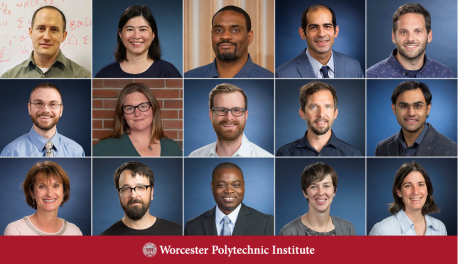

When new acquaintances find out I teach writing, it’s not unusual for them to lament a broad decline in the nation’s writing skills. How does it make me feel, they ask, that students, say, don’t know the difference between adjectives and adverbs? Or, can I believe it that people hardly even know what apostrophes do, let alone where to put them? As someone who treasures good, careful prose, I’m sympathetic to these worries. But as an educator, I think it’s important to steer the conversation in a different direction. What makes us think that students’ knowledge of the parts of speech would “fix” their writing? What assumptions underlie our surety that ignorance of grammar or punctuation is what’s holding students back? That those are the things most important to reviving literate culture? I turn the conversation to these questions because it’s easy to forget that in literacy education, we have choices about what to prioritize. And those choices should rest on careful reflection about what we value (where we want students to end up) and careful interrogation of the assumptions we hold about how students get there.
Writing and thinking about writing depend on this kind of self-reflection and awareness. In all of my work, I try to remind my students, my colleagues, and myself of this importance. In my research, I’m interested in the philosophies of writing that we inculcate in our students--in high school, community college, and the university--and in the ways that those theories implicitly inform how writing instruction is positioned within school curricula. And in my teaching, I ask students to become more aware of these often-conflicting positions of what writing is and does, and therefore how it should be taught—even in my courses that seem to just be, on their face, about how to write better (after all, how can we learn to write “better” if we don’t know how we define that term?). WPI is a great place to do this work. Because project-based learning asks students to engage with real problems in real-world contexts, these questions of how, for whom, and for what purpose become especially visible and especially important.

When new acquaintances find out I teach writing, it’s not unusual for them to lament a broad decline in the nation’s writing skills. How does it make me feel, they ask, that students, say, don’t know the difference between adjectives and adverbs? Or, can I believe it that people hardly even know what apostrophes do, let alone where to put them? As someone who treasures good, careful prose, I’m sympathetic to these worries. But as an educator, I think it’s important to steer the conversation in a different direction. What makes us think that students’ knowledge of the parts of speech would “fix” their writing? What assumptions underlie our surety that ignorance of grammar or punctuation is what’s holding students back? That those are the things most important to reviving literate culture? I turn the conversation to these questions because it’s easy to forget that in literacy education, we have choices about what to prioritize. And those choices should rest on careful reflection about what we value (where we want students to end up) and careful interrogation of the assumptions we hold about how students get there.
Writing and thinking about writing depend on this kind of self-reflection and awareness. In all of my work, I try to remind my students, my colleagues, and myself of this importance. In my research, I’m interested in the philosophies of writing that we inculcate in our students--in high school, community college, and the university--and in the ways that those theories implicitly inform how writing instruction is positioned within school curricula. And in my teaching, I ask students to become more aware of these often-conflicting positions of what writing is and does, and therefore how it should be taught—even in my courses that seem to just be, on their face, about how to write better (after all, how can we learn to write “better” if we don’t know how we define that term?). WPI is a great place to do this work. Because project-based learning asks students to engage with real problems in real-world contexts, these questions of how, for whom, and for what purpose become especially visible and especially important.
Scholarly Work
Ryan Madan, Kimberly LeChasseur, and Esther Boucher-Yip. "Cultivating Communications Skills as Career Preparation Through Multiple Project Experiences." Industry and Higher Education 2024, Vol. 0(0): 1–12.
Madan, Ryan, Kristina Reardon, and Christina Santana. “Zooming Past Institutional Boundaries to Tutor in the Community.” The Post-Pandemic Writing Center: A WLN Digital Edited Collection WLN: A Journal of Writing Center Scholarship. March 1, 2024.
“Ignoring Ethics with Style: Writing Sentences for ‘Non U.S. Persons.’” Harlot: A Revealing Look at the Arts of Persuasion 15 (Spring 2016).
“The Education Before You: When Student Complaint, Criticism, and Storytelling becomes Scholarship.” Writing on the Edge 25.2 (Spring 2015): 15-36
“Remapping the Terrain of Knowledge: Telling Stories from the Two-Year College.” Reader: Essays in Reader-Oriented Theory, Criticism, and Pedagogy. Winter 2010

